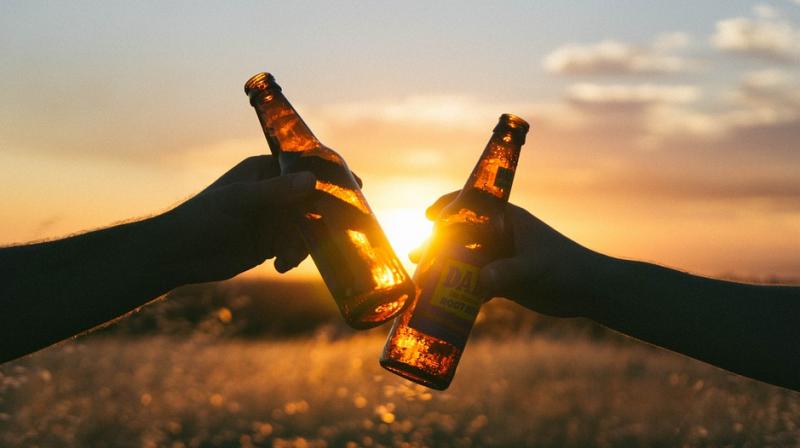Teen drunkenness linked to an early grave: study

People who get drunk for the first time before their fifteenth birthday are more likely to die prematurely than people who don't drink excessively or at least avoid getting drunk until they're older, a U.S. study suggests.
Researchers examined data on drinking habits and death records for almost 15,000 adults who were followed for almost three decades. Compared to participants who said they never got drunk, people who did this at least once before age 15 were 47 percent more likely to die during the study period, while getting drunk at 15 or older was associated with 20 percent higher odds of death.
"Early onset of drinking and drunkenness are associated with alcohol use disorders, and therefore may play a role in elevated alcohol use disorder-related mortality rates," said lead study author Hui Hu, a public health researcher at the University of Florida in Gainesville.
But the study results suggest that addiction isn't the only factor contributing to premature deaths for early drinkers, Hu said by email.
"We found that an estimated 21 percent of the total effects of early drunkenness were mediated through alcohol use disorders, suggesting that many other factors in addition to alcohol use disorders may play important roles," Hu said.
To explore the connection between early drunkenness and a premature death, researchers analyzed data from interviews conducted in the early 1980s that asked people if they had ever had a drunken episode and how old they were the first time it happened. Most participants were between 18 and 44 years old when they completed the interviews.
A total of 9,089 participants, or 61 percent, said they had been drunk, with most of them first getting drunk at or after age 15. About 13 percent of the people who had been drunk did this for the first time before they turned 15.
About 37 percent of the people who got drunk before age 15 had diagnosed alcohol use disorders at the time of the baseline interviews, compared to an 11 percent rate of these disorders in the overall group, researchers report in Drug and Alcohol Dependence.
By the end of the study period, 26 percent of those who had been drunk before age 15 had died, compared to about 23 percent of those who got drunk later and 19 percent of those who had never been drunk.
The study wasn't a controlled experiment designed to prove whether or how people's age when they first get drunk influences how long they live.
Another limitation of the study is that researchers combined people who said they never got drunk and people who abstained from alcohol altogether into one category. They also didn't distinguish between teens who got drunk at 13 or 14 from kids who got drunk even younger, the authors note.
"We know that alcohol abuse leads to earlier mortality, but it is also possible that earlier abuse reflects other genetic or environmental characteristics that lead to earlier mortality," Dr. Michael Criqui, a public health researcher at the University of California, San Diego, School of Medicine who wasn't involved in the study, said by email.
Early drunkenness might point to other risk factors such as risk-taking behavior, mental health issues or a lack of social or economic support that might influence overall health and longevity, noted Dr. Gregory Marcus, a researcher at the University of California, San Francisco, who wasn't involved in the study.
"No one should interpret these data to mean that their fate is sealed," Marcus said by email. "On the contrary, these findings are useful exactly because they may help us identify those at risk so we can prevent these adverse outcomes."
Because the increased mortality risk exists even among people without alcohol addiction, it's possible that people who aren't diagnosed with alcohol use disorders might still need be careful about how much they drink, said Joy Bohyun Jang of the Institute for Social Research at the University of Michigan in Ann Arbor.
"Those with alcohol use disorders may receive attention to their alcohol use behaviors by practitioners or they themselves may be cautious about their alcohol use," Jang, who wasn't involved in the study, said by email. "But what this study tells us is that those without alcohol use disorder may need the same level of attention if they experience drunkenness early in their life."

